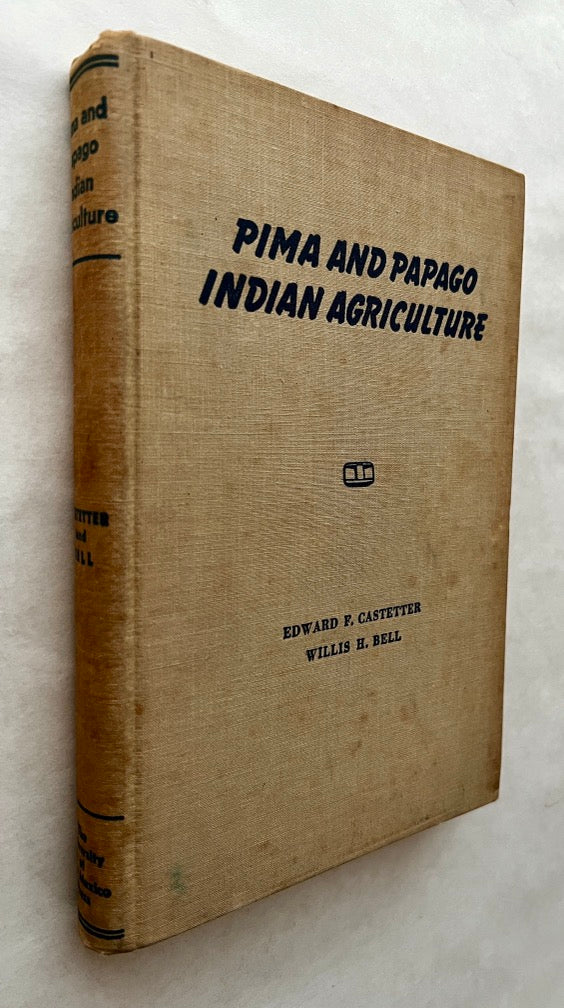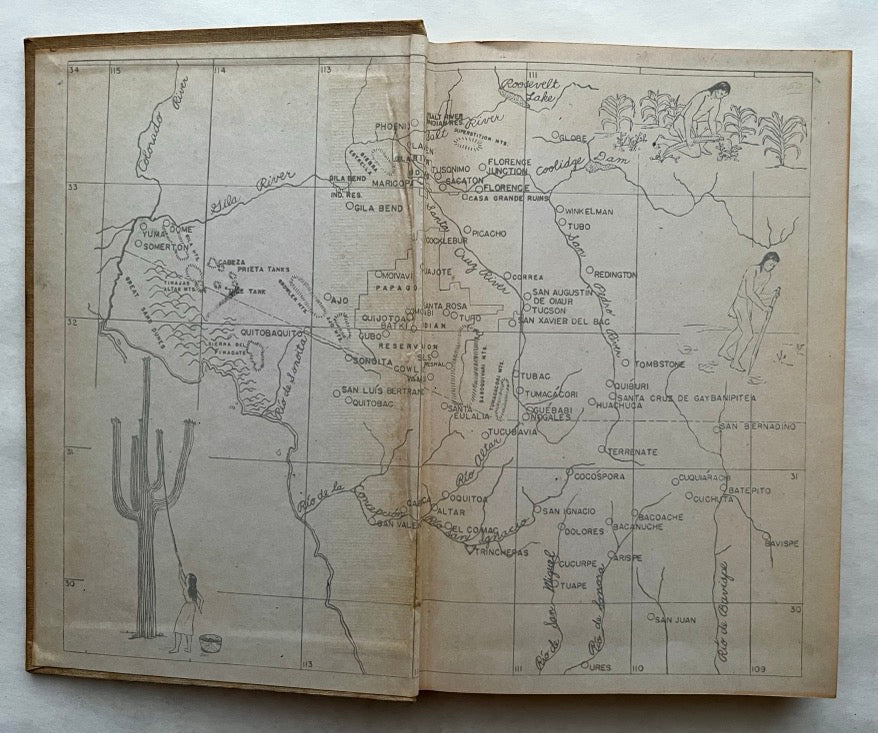Castetter, Edward F; Bell, Willis H.
Pima and Papago Indian Agriculture
Pima and Papago Indian Agriculture
Couldn't load pickup availability
Albuquerque, N.M: The University of New Mexico Press, 1942. First Edition. xv, 245 pages: illustrations; 24 cm; bibliographical references and index. Maps to endpapers. Cloth boards mildly foxed and soiled; else a very tight , internally clean copy. Very good. No jacket. Hardcover. ISBN: 0404155103; 9780404155100
Inter-Americana Studies; I. [series]. An authoritative work. ¶ Contents: The Pimans -- Land, climate and vegetation -- Early basis of Piman subsistence -- Piman cultivated crops -- Selection, development and ownership of land -- Agricultural implements -- Planting, irrigation and cultivation -- Harvest, storage and seed selection -- Cultivation and utilization of tobacco--a ceremonial crop -- General ceremonial aspects of Piman agriculture. ¶ Authors "Edward Franklin Castetter (1896-1978) was an American botanist and ethnobiologist known for his research on the use of plants by indigenous peoples in the southwestern United States and northern Mexico. Born in Indiana, Castetter received his Ph.D. from the University of Chicago and spent most of his academic career at the University of New Mexico. He served as the head of the university's Biology Department for many years and played a key role in its development. Castetter conducted extensive fieldwork among various Native American communities, documenting their knowledge and use of plants for food, medicine, and other purposes. His research contributed significantly to the fields of ethnobotany and ethnoecology, and his publications remain important resources for scholars in these fields. In addition to his research, Castetter was also a dedicated educator and mentor, training many students who went on to have successful careers in botany and related fields. His contributions to science and education have had a lasting impact on the study of plants and indigenous cultures in the southwestern United States." ... "Willis H. Bell (1908-1991) was an American anthropologist known for his work in ethnography and ethnohistory, particularly in relation to the indigenous peoples of the southwestern United States and northern Mexico. Bell conducted extensive fieldwork among various Native American communities, documenting their cultural practices, social structures, and historical narratives. His research contributed significantly to our understanding of these cultures and their histories. In addition to his fieldwork, Bell also held academic positions at several universities, where he taught and mentored students in anthropology and related fields. His scholarly writings, which include numerous articles and book chapters, have been widely cited in anthropological literature. Bell's work has had a lasting impact on the field of anthropology, particularly in the study of indigenous cultures in the southwestern United States and northern Mexico."—BookBotX ¶
Tohono O'odham Indians. Indians of North America -- Agriculture. Pima. Papago. Indians of North America -- Agriculture. Pima Indians. Tohono O'odham Indians.
Share






